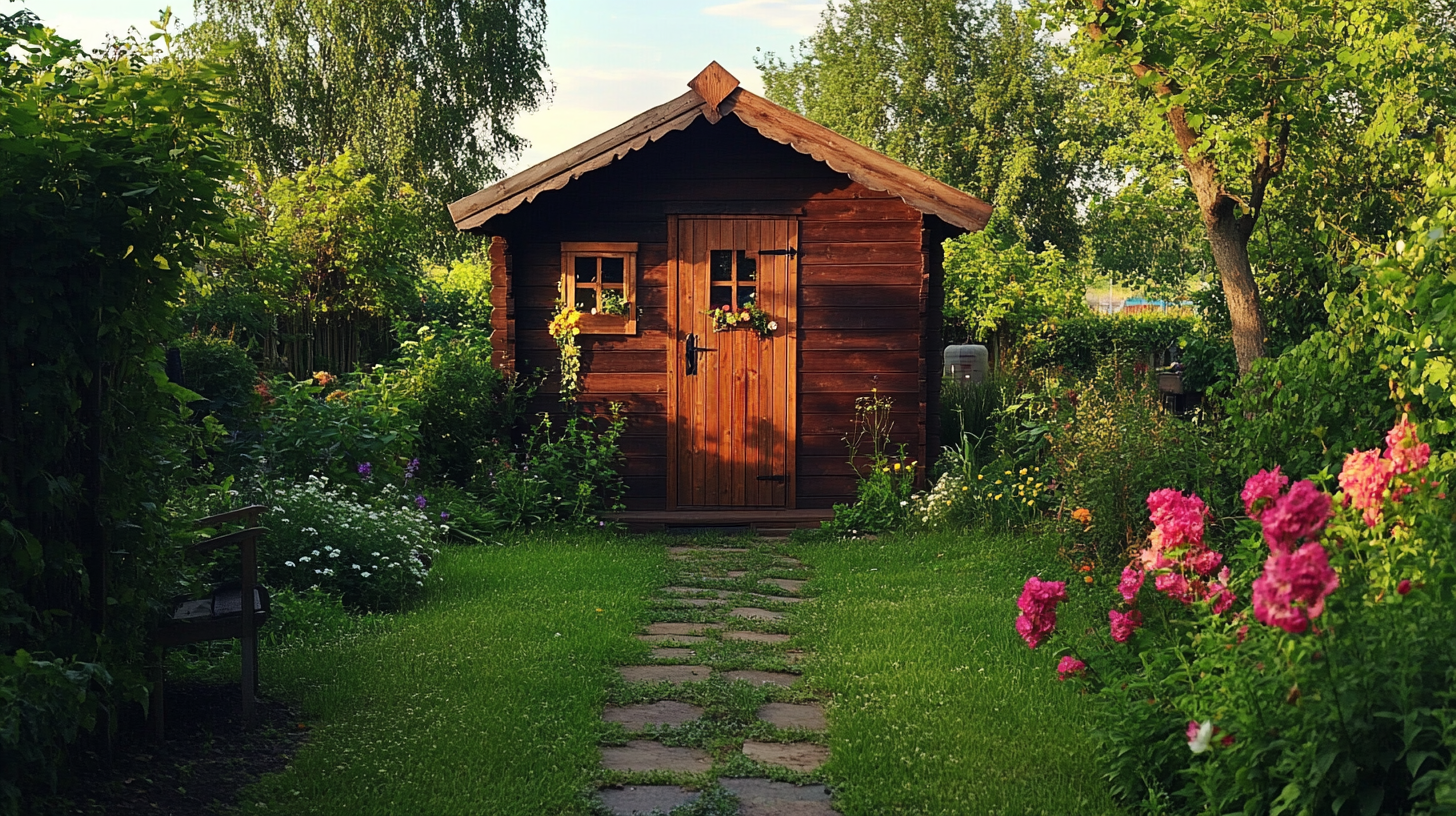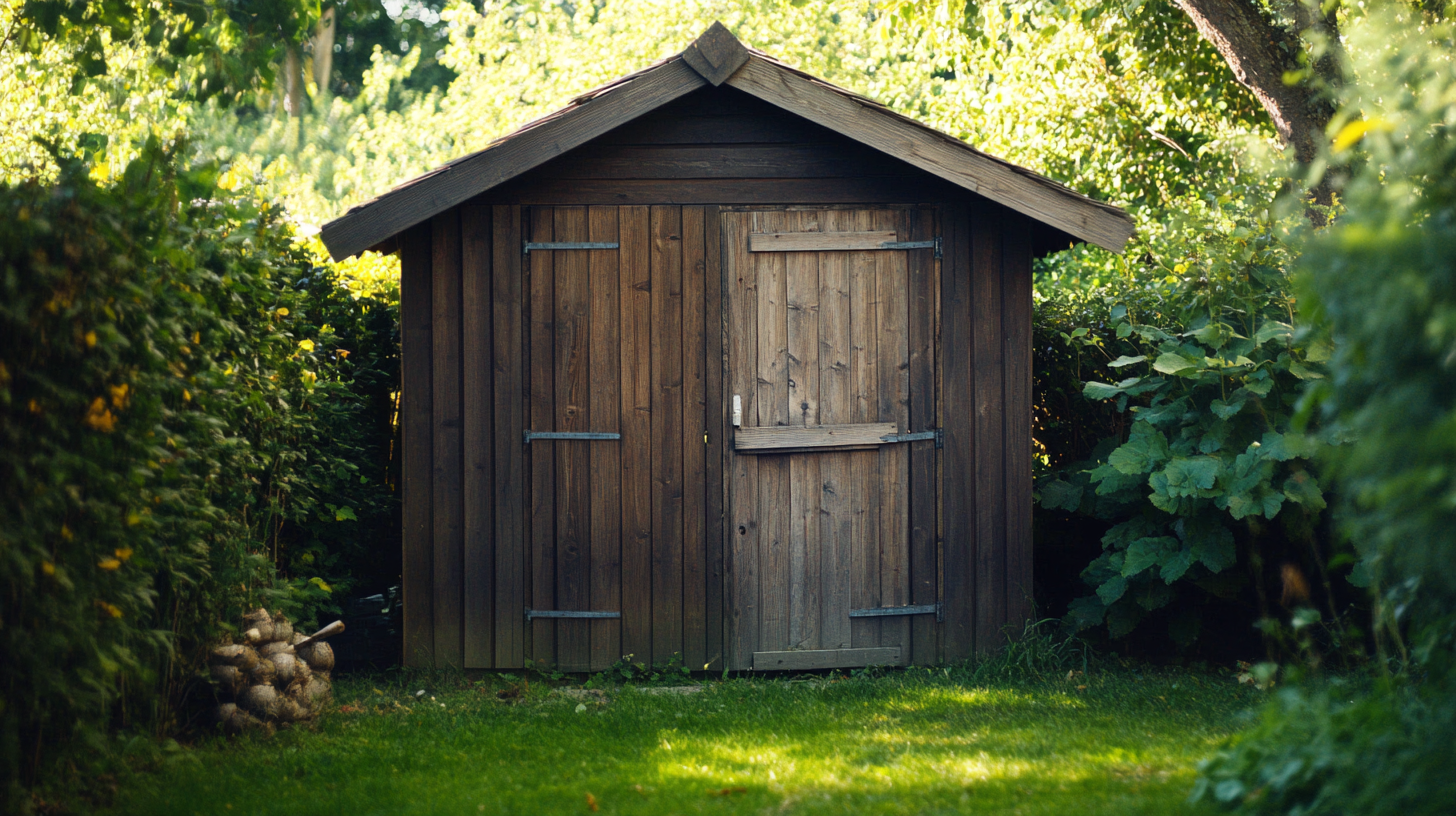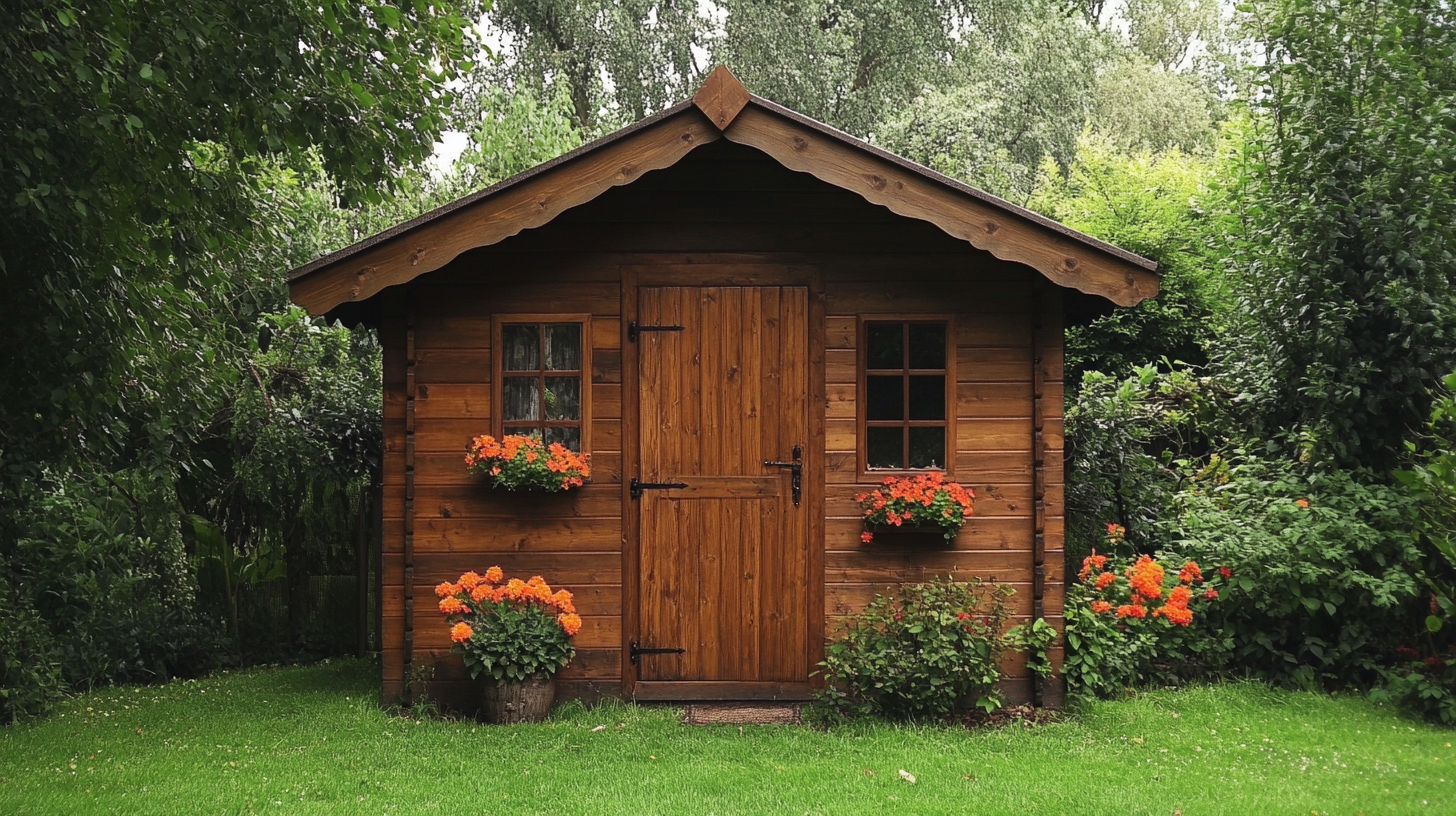Sorry, your browser is not supported. For a better experience, keep your browser up to date. Check here for latest versions
In recent years, the demand for high-quality outdoor solutions has surged, with the global garden shed market projected to reach USD 285 million by 2025, according to a report by Market Research Future. Among various materials used, "Wooden Garden Sheds" stand out not only for their aesthetic appeal but also for their sustainability and durability. As homeowners increasingly prioritize eco-friendly options and functional outdoor spaces, the industry is witnessing a significant shift towards wooden structures that conform to global quality standards. Furthermore, the European Timber Regulation (EUTR) emphasizes the importance of sourcing sustainably harvested wood, thereby pushing manufacturers to enhance the quality and ethical production of wooden garden sheds. This blog explores how these elegant yet practical additions to gardens are setting new benchmarks for quality and sustainability in the outdoor solutions sector.

The rise of wooden garden sheds symbolizes a significant shift towards sustainable outdoor solutions. As homeowners become increasingly environmentally conscious, wooden structures provide an eco-friendly alternative to traditional metal or plastic sheds. According to a report from Freedonia Group, the demand for wooden garden products is projected to grow by 5% annually, fueled by consumer preferences for renewable materials that reduce carbon footprints. These sheds not only serve practical purposes—such as storage and workspace—but also enhance the aesthetic appeal of outdoor spaces.
When considering a wooden garden shed, it's essential to select the right type of wood. Cedar and redwood are popular choices due to their natural resistance to decay and insects, extending the lifespan of the structure. Additionally, opting for sustainably sourced wood, certified by organizations like the Forest Stewardship Council (FSC), ensures that your shed contributes positively to environmental conservation.
Tip: To maximize the longevity of your wooden shed, invest in regular maintenance, including applying a weatherproof finish and checking for signs of moisture damage periodically. This proactive approach can reduce long-term repair costs and maintain the beauty of your outdoor space.
This bar chart illustrates the rising trend in global sales of wooden garden sheds from 2019 to 2023, highlighting their growing popularity as sustainable outdoor solutions.
High-quality wooden garden sheds have emerged as a vital component in outdoor solutions, showcasing durability and aesthetic appeal. According to a report by IBISWorld, the global market for outdoor storage structures, including garden sheds, has been experiencing a steady growth of approximately 6.5% annually. This growing demand is fueled by homeowners' desire for functional, attractive outdoor spaces that complement their landscaping while providing essential storage.
One of the key features that distinguish premium wooden garden sheds is the choice of materials. Sheds constructed from high-grade, treated wood not only resist the elements but also prevent issues like rot and insect damage. The National Association of Home Builders (NAHB) indicates that treated wood can extend the lifespan of outdoor structures by up to 30 years. Furthermore, proper insulation and ventilation are crucial to protect stored items, enhancing the overall functionality of the shed. With features such as customizable designs and eco-friendly finishes, high-quality wooden garden sheds not only serve practical purposes but also elevate the aesthetic value of outdoor environments.

The garden shed manufacturing industry has evolved significantly, with an increased focus on global standards and certifications. These benchmarks ensure that the sheds not only meet consumer expectations but also comply with safety, durability, and environmental standards. According to the International Organization for Standardization (ISO), around 70% of manufacturers are adopting ISO-certified practices to enhance product reliability. This shift is driving a new era of quality assurance in outdoor solutions, making wooden garden sheds a prudent investment for homeowners seeking long-lasting structures.
When considering a garden shed, always check for relevant certifications like ISO 9001 for quality management and FSC (Forest Stewardship Council) for sustainable material sourcing. These certifications can signal to consumers that the products are made with rigorously controlled processes and responsible management of forest resources.
Tip: Look for manufacturers that provide transparent information about their certifications and production methods. This not only ensures you are supporting sustainable practices but also guarantees a higher quality product that will stand the test of time. Ultimately, prioritizing certified garden sheds can lead to a better return on your investment and contribute positively to the environment.
When considering outdoor storage solutions, wooden garden sheds stand out not only for their aesthetic appeal but also for their unique benefits compared to options made from other materials. Wooden sheds typically offer superior insulation properties and can blend seamlessly with natural landscapes, enhancing the overall charm of garden spaces. Unlike metal or plastic alternatives, they provide a warm and inviting presence, making them an attractive addition to any backyard.
However, it’s essential to weigh the advantages against potential drawbacks. While metal sheds may excel in durability and resistance to pests, they can suffer from temperature fluctuations that may affect stored items. Plastic sheds, on the other hand, are generally lighter and easier to maintain, yet they often lack the robust character and longevity associated with wooden structures. Ultimately, the choice of shed material should reflect not only practical considerations but also personal preferences, as these outdoor solutions contribute significantly to the overall environment and usability of outdoor spaces.

As the demand for outdoor solutions, particularly wooden garden sheds, continues to rise, the focus on quality standards has never been more crucial. Quality standards serve as a benchmark for durability, design, and functionality, ensuring that consumers receive reliable products that enhance their outdoor spaces. In an age where sustainability is paramount, adhering to these standards not only ensures consumer satisfaction but also promotes environmentally friendly practices in the manufacturing process.
When considering wooden garden sheds, it's essential to look for materials that are sourced sustainably and treated to resist weathering. Tips for selecting the right shed include checking for certifications that verify quality control during production, ensuring that your investment lasts longer and maintains its aesthetic appeal. Additionally, examine the construction techniques used, as well-built structures will offer better resistance to rot and pests.
Another vital aspect of quality standards in outdoor solutions is the adherence to safety regulations. This includes ensuring proper ventilation and structural integrity. Be sure to choose sheds designed by reputable manufacturers who prioritize safety and efficiency. Quality standards not only protect the consumer but also elevate the industry's reputation, driving innovation and better overall products in the future.
| Dimension | Description | Importance | Future Trends |
|---|---|---|---|
| Materials | Sustainable sourcing of wood | Promotes environmental responsibility | Increased use of recycled materials |
| Design Standards | Compliance with international design standards | Ensures safety and functionality | Growth in modular designs |
| Durability | Long-lasting construction techniques | Reduces lifetime costs for consumers | Focus on weather-resistant materials |
| Customer Feedback | Implementing user reviews and ratings | Improves product quality and innovation | Incorporation of smart technology for user input |